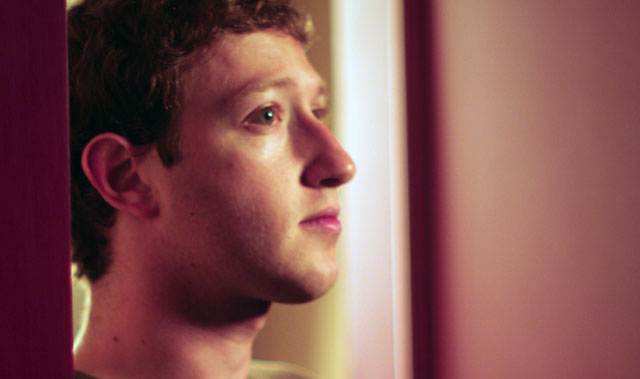
Facebook collects less than the 5% of the US$500bn spent on advertising each year. To achieve the deepest, darkest dreams of Mark Zuckerberg, the company must become the first one that dominates both the kind of precision ads that built Google and the emotional ads that made TV the world’s dominant marketing force.
Facebook has so far cracked the first half of that equation, following in the footsteps of Google by locking down what’s called “direct response” advertising. If I own a store in Brooklyn that sells running shoes, I naturally want to find people who are in the market for what I’m selling. If someone types “running shoes Brooklyn” into Google, the company has a pretty good clue that is a person I want. My store can pay to show a link to my website to this probable Brooklyn runner.
Largely because Google became an efficient way for many businesses to find people who are looking for exactly what the businesses are selling, direct response ads make up the majority of online advertising. Facebook is pretty good at this type of advertising, too, again because we tell Facebook who we are and what we like.
But dominating direct response ads with Google isn’t enough for Facebook. About $200bn is spent each year on TV commercials, mostly on direct response’s handsome brother, branded advertising. Brand ads are those TV commercials of a smiling couple driving an Audi through a snowy mountain range. The next time we go car shopping, Audi wants us to have this innate feeling that its vehicles will make us happy and beautiful.
Away from the Internet, brand ads make up a majority of advertising. And they’re lucrative. The average cost to reach a thousand people with a prime-time TV ad was $50 in 2015, according to a Bloomberg Intelligence analysis. The comparable ad price on Facebook was $5.
Facebook wants these pricey brand ads desperately. Facebook’s Sheryl Sandberg is fond of saying that for advertisers and their $500bn budgets, the social network is like the Super Bowl every night. She’s wrong. Facebook is way bigger than the Super Bowl. More than 1,1bn people use Facebook daily. About 110m people watch the Super Bowl telecast.
Sandberg’s pitch is about convincing advertisers to think of Facebook as a place that is even bigger than TV’s biggest stage but with the stockpile of personal information to target ads only to people who are most likely to buy an Audi. In Facebook’s view, it is the best of Google’s bloodlessly efficient direct response advertising with the mass reach and charm of TV commercials.
It sounds beautiful, but it turns out it can be hard to be both Google and television. The world’s biggest advertiser, Procter & Gamble, told theWall Street Journalthat it found targeting niches like teenage shavers on Facebook generated too narrow an audience for P&G brands that need to sells millions of bottles of Tide and Gillette razors. This seems, I don’t know, blindingly obvious?
P&G said it won’t spend less money on Facebook, but it and some other big advertisers seem to be falling back in love with TV. The top 100 marketers spent 1% more on TV ads in the first quarter of this year compared with the amount in the period a year earlier, according to a Morgan Stanley analysis published in May. That was a lift from a 2% decline in their combined TV ad spending last year.
P&G was among a handful of top brand advertisers — also including GM, Pepsi and Verizon — that sharply increased their TV ad spending this year after pulling back in 2015. “Investors should feel better about TV’s place in ad budgets today than they did a year ago,” Morgan Stanley wrote.
What’s good for TV is probably not good for Facebook’s ambitions in brand advertising. Still, the winds are at Facebook’s back. Younger people in particular are spending more free time on their phones, including on Facebook, and less on TV. Facebook is expanding the pool of potential advertisers to small businesses that never advertised beyond the Yellow Pages. Facebook’s commitment to online video — which looks a lot like TV — helps it lure brand ads, too.
It won’t be easy for Facebook, but the company knows it won’t crack the next 95% of that advertising spending unless it figures out how to become the perfect advertising medium for companies hunting for the best blend of TV and the Web.
(Techcentral.co.za)









Comments
Post a Comment